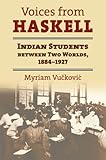|
|
Help |
| Home - Basic K - Kansas Boarding Schools (Books) | |
e99 Online Shopping Mall
|
|
Help |
| Home - Basic K - Kansas Boarding Schools (Books) | |
| 1-5 of 5 |
click price to see details click image to enlarge click link to go to the store
| 1. Boarding School Seasons: American Indian Families, 1900-1940 (North American Indian Prose Award) by Brenda J. Child | |
 | Paperback: 154
Pages
(2000-02-01)
list price: US$14.95 -- used & new: US$10.46 (price subject to change: see help) Asin: 0803264054 Average Customer Review: Canada | United Kingdom | Germany | France | Japan |
|
Editorial Review Product Description Customer Reviews (2)
| |
| 2. Education for Extinction: American Indians and the Boarding School Experience 1875-1928 by David Wallace Adams | |
 | Paperback: 384
Pages
(1997-12)
list price: US$17.95 -- used & new: US$13.00 (price subject to change: see help) Asin: 0700608389 Average Customer Review: Canada | United Kingdom | Germany | France | Japan |
|
Editorial Review Product Description Education for Extinction offers the first comprehensive account of this dispiriting effort. Much more than a study of federal Indian policy, this book vividly details the day-to-day experiences of Indian youth living in a "total institution" designed to reconstruct them both psychologically and culturally. The assault on identity came in many forms: the shearing off of braids, the assignment of new names, uniformed drill routines, humiliating punishments, relentless attacks on native religious beliefs, patriotic indoctrinations, suppression of tribal languages, Victorian gender rituals, football contests, and industrial training. Especially poignant is Adams's description of the ways in which students resisted or accommodated themselves to forced assimilation. Many converted to varying degrees, but others plotted escapes, committed arson, and devised ingenious strategies of passive resistance. Adams also argues that many of those who seemingly cooperated with the system were more than passive players in this drama, that the response of accommodation was not synonymous with cultural surrender. This is especially apparent in his analysis of students who returned to the reservation. He reveals the various ways in which graduates struggled to make sense of their lives and selectively drew upon their school experience in negotiating personal and tribal survival in a world increasingly dominated by white men. The discussion comes full circle when Adams reviews the government's gradual retreat from the assimilationist vision. Partly because of persistent student resistence, but also partly because of a complex and sometimes contradictory set of progressive, humanitarian, and racist motivations, policymakers did eventually come to view boarding schools less enthusiastically. Based upon extensive use of government archives, Indian and teacher autobiographies, and school newspapers, Adams's moving account is essential reading for scholars and general readers alike interested in Western history, Native American studies, American race relations, education history, and multiculturalism. Customer Reviews (9)
Secondly, education quickened the process of cultural evolution from savagism to civilization. Isolating the children, many felt, would help to reduce the influence of their tribes and their traditional cultures. Lastly, education helped prepare the Indians for self-sufficiency. I really enjoy this book as it is extremely well written. Adams, unlike some historians, did not use too many jargons and his writing is easy to understand. Adams also provided background information for readers who are not proficient in this subject matter. In addition, "Education for Extinction" was heavily researched and well-documented. ... Read more | |
| 3. Voices from Haskell: Indian Students Between Two Worlds, 1884-1928 by Myriam Vuckovic | |
 | Hardcover: 330
Pages
(2008-10-27)
list price: US$34.95 -- used & new: US$27.96 (price subject to change: see help) Asin: 0700616179 Canada | United Kingdom | Germany | France | Japan |
|
Editorial Review Product Description Drawing on children's own accounts in letters, diaries, and other first-hand sources, Myriam Vučković reveals what Haskell's students really thought about the boarding school experience. By examining the cultural encounters and contests that occurred there, she portrays indigenous youth struggling to retain a sense of dignity and Indian identity--and refusing to become passive victims of assimilation. Vučković focuses on issues that directly affected the students, such as curriculum, health, gender differences, and extracurricular activities. She doesn't flinch from the harsh realities of daily life: poor diet, overcrowding, inadequate medical care, and students forced to work to maintain school facilities and often subjected to harsh punishments. In response to this hostile environment, students developed a subculture of accommodation and resistance--sometimes using sign language as a way around the "English only" rule--that also helped break down barriers between tribes. Many found a positive experience in the education they received and discovered new sources of pride, such as the Native American Church, Haskell's renowned football team, and its equally accomplished school band. Haskell is the only former government boarding school to evolve into a four-year university and still boasts a unique intertribal character, providing a culturally diverse learning environment for more than 1,000 students from 150 tribes every year. The first in-depth study of the school from its founding through the first quarter of the twentieth century, Voices from Haskell is a frank look at its history, a tribute to its accomplishments, and a major contribution to studies of the Indian boarding school experience. | |
| 4. Education for Extinction ,American Indians &the Boarding-School Experience, 1875-1928 1997 publication by DavidWallaceAdams | |
| Paperback:
Pages
(1997-01-01)
Asin: B0032VI268 Canada | United Kingdom | Germany | France | Japan | |
| 5. Education for Extinction : American Indians and the Boarding School Experience, 1875-1928 by David W. Adams | |
| Hardcover:
Pages
(1997)
Asin: B000KXUJE4 Canada | United Kingdom | Germany | France | Japan | |
| 1-5 of 5 |